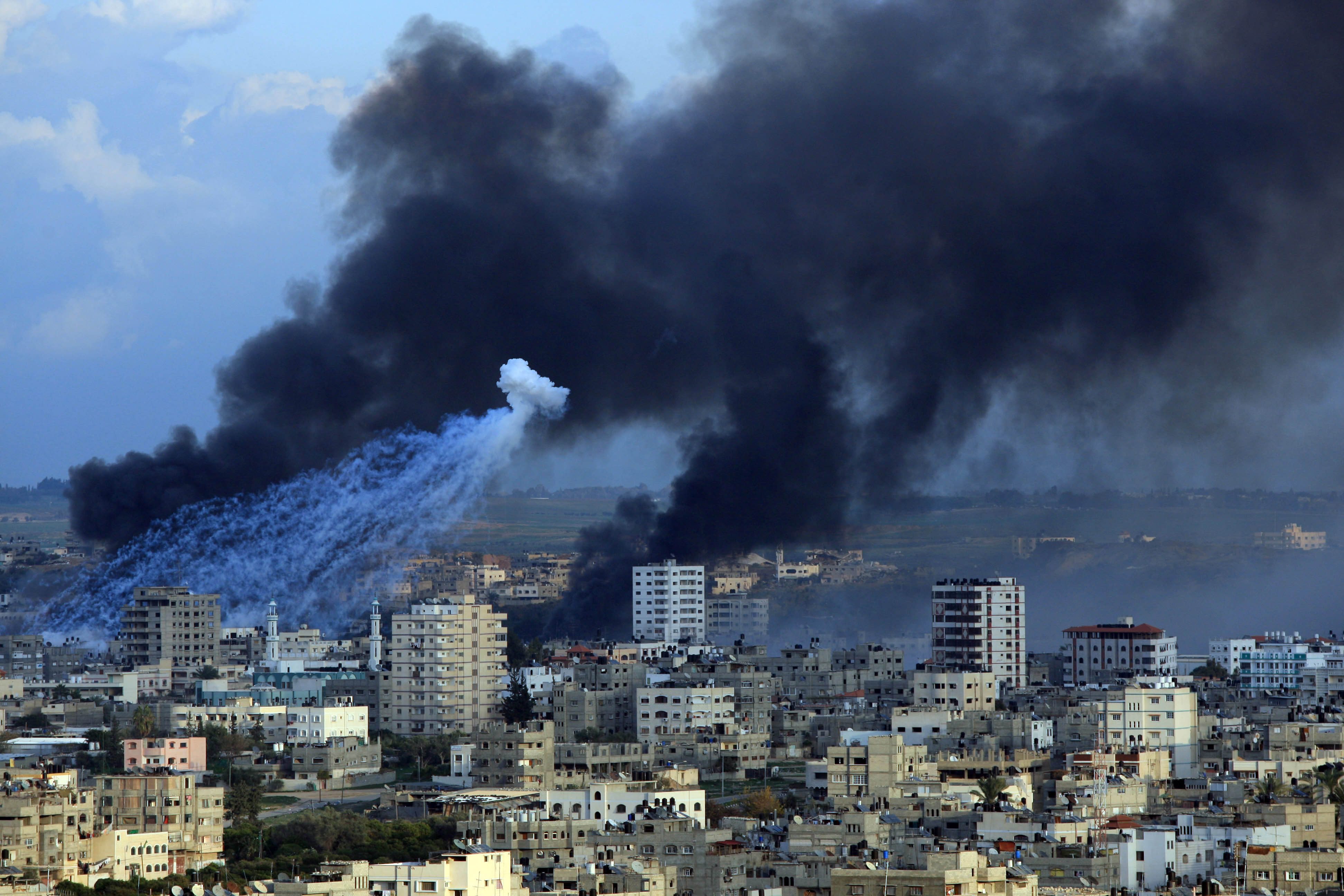The protesters hope to bring aid to the 1.5 million residents of Gaza a year after Israel’s 23-day offensive ended on 18 January 2009.
“It’s a shame on Egypt to prevent these people from entering Gaza, which has been suffering this Israeli blockade for a long time now,” Diaaeddin Gad, a spokesman for the activists, told IRIN.
On 27 December, the marchers were prevented by police from floating 1,400 candles on the River Nile to commemorate the deaths of 1,400 Palestinian victims of the offensive.
Margaret Hawthorn, 62, who flew in from Massachusetts in the USA to take part in the event, said she was stunned to discover she would not be allowed to show solidarity with the Gazan people. “It’s important that we come here to express support for the people of Gaza,” she told IRIN.
She was one of some 1,360 people - including doctors, lawyers, diplomats, rabbis, imams, a women’s delegation, a Jewish contingent, a veterans group and Palestinians born overseas - due to take part in the event on 31 December organized by Gaza Freedom March, a coalition of activists of all faiths focusing on human rights.
Police also prevented the activists from staging a protest outside Egypt’s Bar Association in central Cairo.
“This is so contradictory,” said Nikos Progonlis, a Greek man who came to Cairo with his wife for the march. “Egypt declares its support to the people of Gaza on the one hand, but asks us not to march for Gaza on the other. I really can’t understand that.” He said friends of his who wanted to come to Cairo via the Egyptian city of al-Arish had been arrested earlier in the day.
Other activists said many people had been denied Egyptian visas.
Steel barrier
|
Photo: Erica Silverman/IRIN  |
| Sewage lagoons next to a sewage pumping station in Beit Lahiyah, Gaza. The UN has called for full and unrestricted access for spare parts and materials critically needed to restore Gaza’s water and sanitation services |
Tensions between Gaza activists and the Egyptian authorities are already high because of a recent Egyptian decision to build an underground steel barrier along its part of the border with the Strip - designed to prevent the smuggling of arms and goods through underground tunnels between Gaza and Egypt.
Egyptian Foreign Minister Ahmed Abul Gheit defended the barrier, calling it a “national security issue”, and others have publicly condemned the Gaza activists.
“Some of these convoys contain radical people from several countries who can cause trouble if they are let in,” Sherif Hafez, an Egyptian political analyst and specialist on the Palestinian-Israeli conflict, told IRIN. “These people want to spoil Egypt-Israeli relations.”
“Egypt is just taking its orders from Israel,” activists’ spokesman Gad said. “It would never have prevented us from entering Gaza and would never have built this barrier if Israel had not wanted that.”
A report in August 2009 by the UN Office for the Coordination of Humanitarian Affairs (OCHA) detailed the humanitarian effects of the blockade, which has been in place since 2007.
ae/ed/cb/oa
This article was produced by IRIN News while it was part of the United Nations Office for the Coordination of Humanitarian Affairs. Please send queries on copyright or liability to the UN. For more information: https://shop.un.org/rights-permissions





